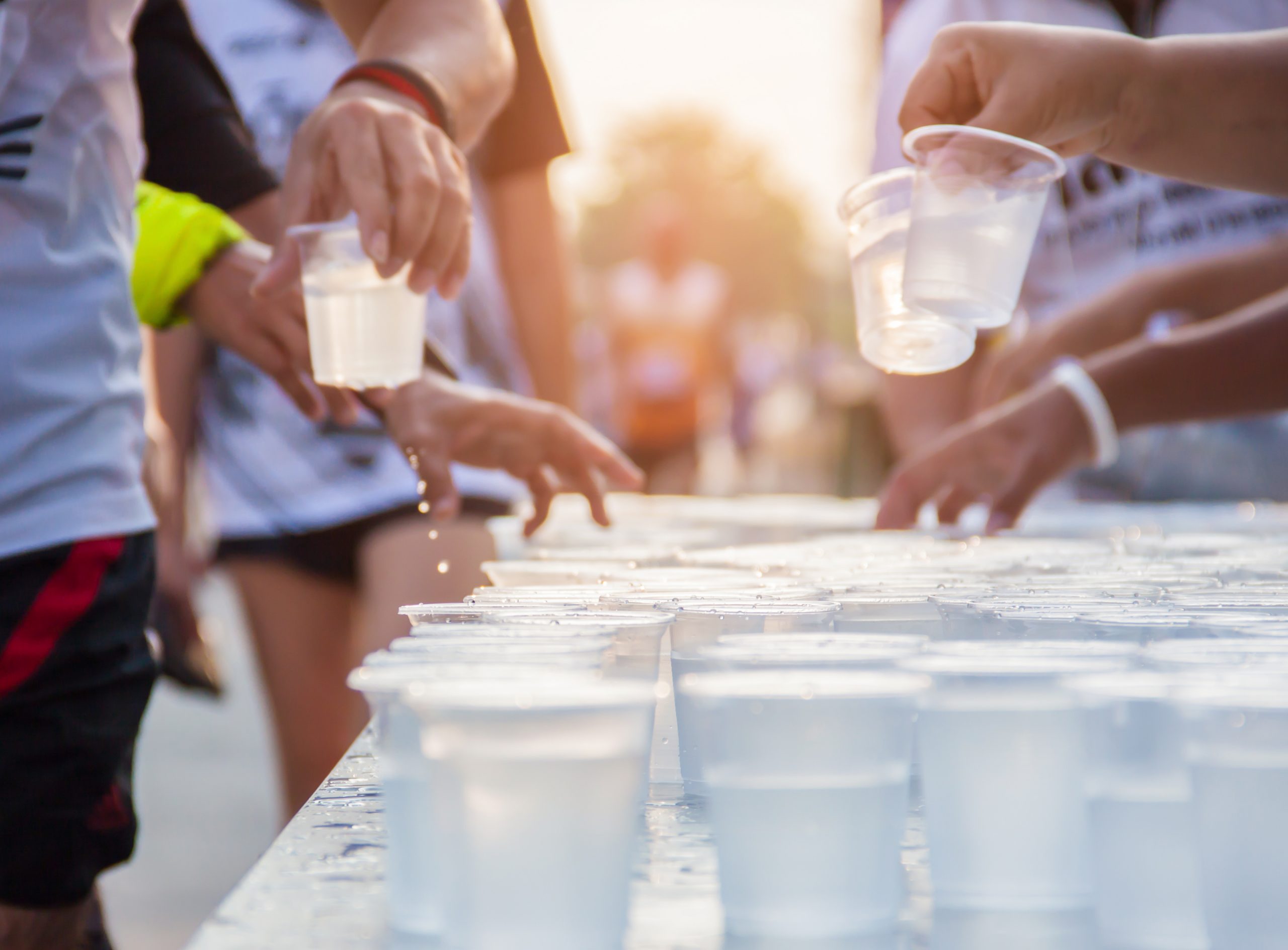Each week, OMRF Chief Medical Officer Dr. Judith James opens “Adam’s Journal” to answer a medical question from Adam Cohen, OMRF’s senior vice president & general counsel.
Adam’s Journal
My sister recently completed the Boston Marathon. (Please indulge a brief moment of brotherly bragging: My sister, Ali, is a phenomenal athlete!)
She started out with a friend, who eventually couldn’t keep pace with Ali despite the fact that her training indicated she should’ve been able to. Ali’s friend ended up growing nauseous and dizzy. She was able to finish, but it took her more than an hour longer than she expected.
The day was quite warm, and Ali’s friend drank lots of water before and during the race. In fact, she now believes her problems were caused by overhydration. Is that possible?
Dr. James Prescribes
Not only is it possible, but a research study looked at a group of finishers at the Boston Marathon and found that more than 10% suffered from the condition.
Technically known as hyponatremia, the condition occurs when the concentration of sodium in the bloodstream is abnormally low. Although it can be brought about by an underlying medical condition, the most common cause is drinking too much water, which dilutes the body’s sodium levels.
Symptoms can include nausea, vomiting and confusion. Extremely low sodium levels can trigger seizures and loss of consciousness and can be life-threatening.
In a study published in The New England Journal of Medicine, researchers looked at the blood sodium levels of nearly 500 people who’d just finished the Boston Marathon. They found that 13% had hyponatremia. Among women, that figure rose to nearly 1 in 4.
In addition to being female, a finisher’s chances for hyponatremia also rose as their times increased. Not surprisingly, researchers found that the best predictor of the condition was weight gain during the race, which makes sense, as that increase was almost certainly due to excess fluid intake.
Interestingly, the scientists saw no links between hyponatremia and what types of fluids runners consumed during the race. This is probably because, even if runners chugged drinks like Gatorade, the relatively low levels of sodium in the drinks were insufficient to offset the large volume of fluid intake.
None of this suggests that runners or people engaged in other activities should stop hydrating. Especially as temperatures warm and we perspire more, taking in adequate fluid is crucial. Indeed, dehydration and overheating pose a much greater risk for most than overhydration.
Fortunately, most cases of hyponatremia resolve rapidly once you stop drinking. In severe situations, medical care and intravenous electrolytes may be needed.
If you find yourself feeling nauseous or dizzy during exercise, stop immediately. If it persists, seek care. Your sister’s friend may have made it to the finish line safely, but that’s not a gamble I’d recommend.
–
James is executive vice president and chief medical officer of the Oklahoma Medical Research Foundation. Cohen, a marathoner, is OMRF’s senior vice president and general counsel. Send your health questions to contact@omrf.org.



